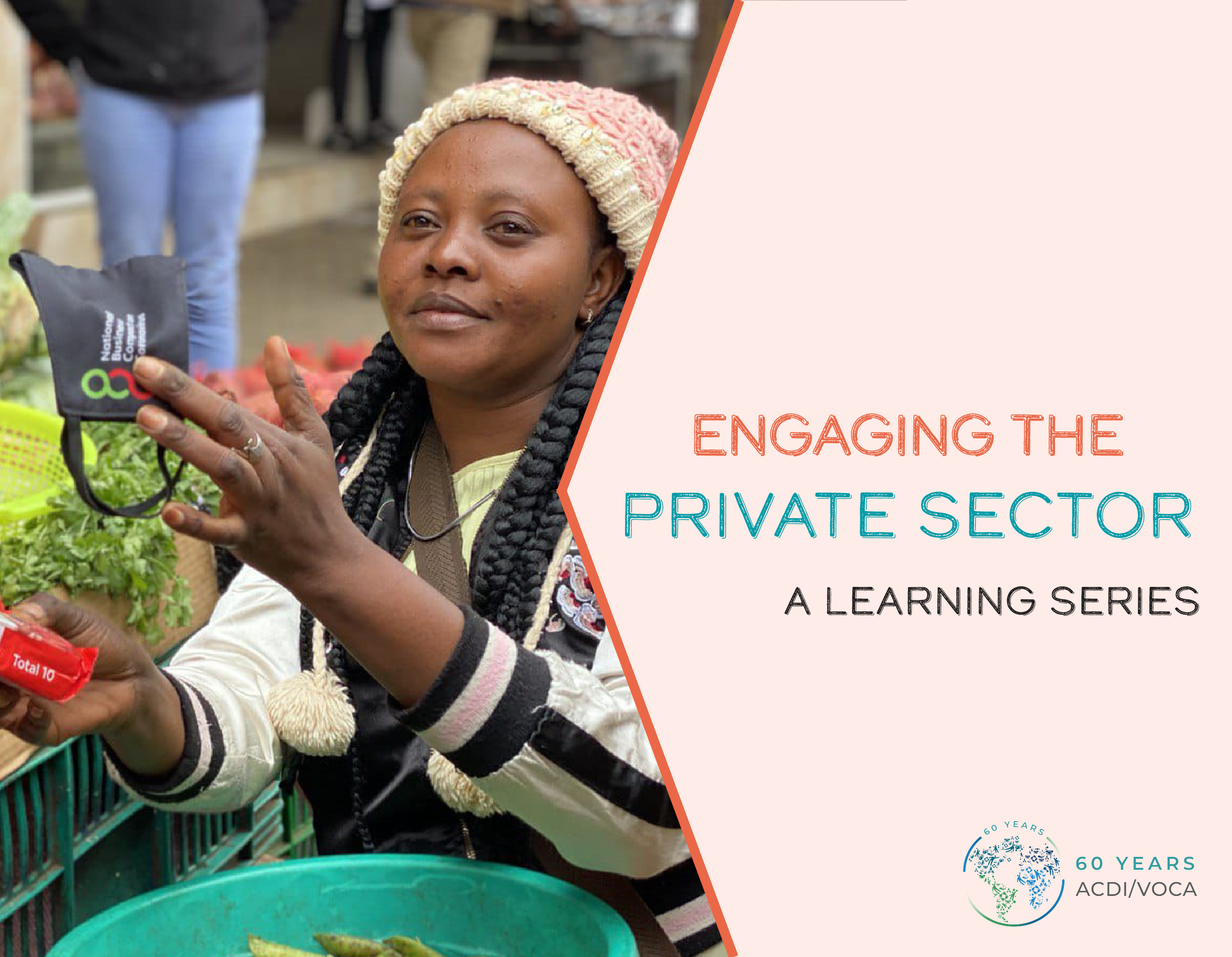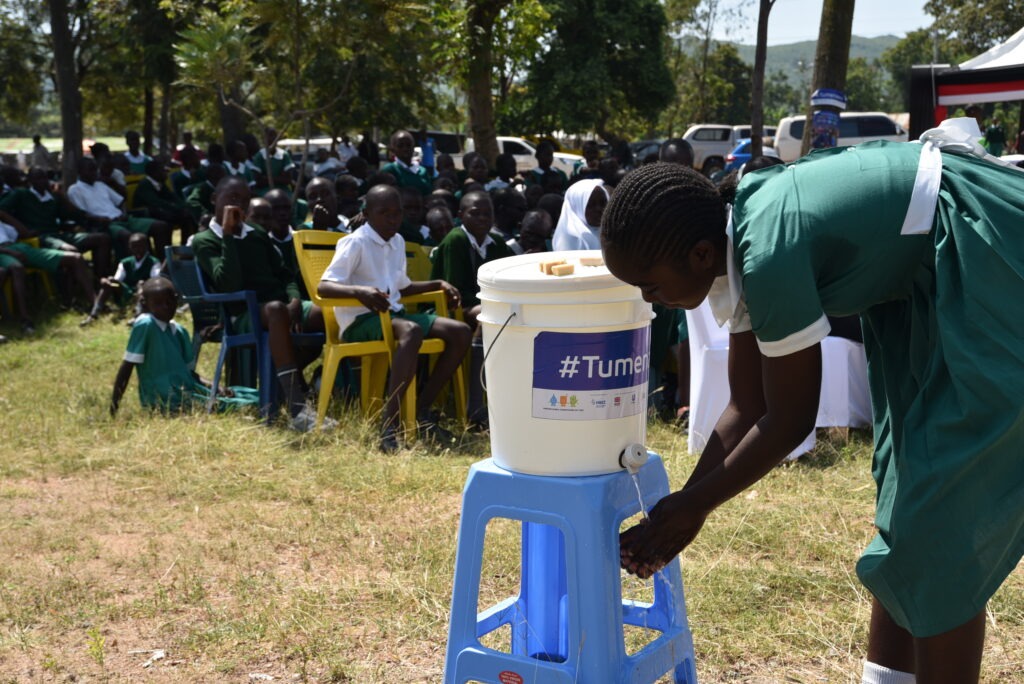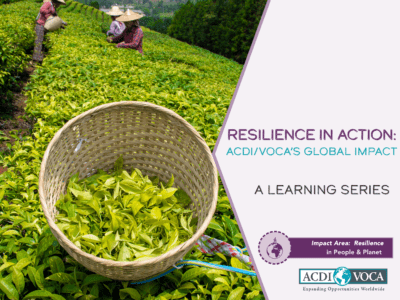
In January, ACDI/VOCA hosted a panel discussion on how the private sector is leading development as part of the Society for International Development’s Locally Led Development series. During the discussion, Mark Sevier, Senior Director of Private Sector Engagement at ACDI/VOCA, spoke with Prof. Myriam Sidibe, Founder and Chief Mission Officer of Brands on a Mission. Sidibe is a leading global expert on brands that drive health outcomes through behavioral change.
Continue reading for Sidibe’s insights into how private-sector companies can drive positive health outcomes.

Q: How does Brands on a Mission work with marketing to influence the way companies do business and invest in social outcomes?
A: Brands on a Mission helps transform business models to drive social impact and business growth through purpose. We consider behavior change at scale to be central to sustainable social impact – this is where marketing comes into play. When marketers harness existing frameworks (such as the ‘cue, behavior, reward’ framework) to change behaviors for good, this can drive impact at scale. For example, by shifting people towards washing their hands, wearing condoms when required and making smart drinking choices, marketers can influence long-term social outcomes.
In fact, this is exactly what we’ve been working on with AB InBev – using social norms marketing to get people to make smarter drinking choices to reduce drink driving, combat binge drinking, and gender-based violence. Successful brand purpose deployment relies on careful identification of the brand’s social purpose followed by leveraging the creativity of marketing teams to come up with what I call purposeful solutions.
Q: How has Brands on a Mission engaged companies in multistakeholder platforms to respond to different kinds of shocks, such as Covid-19? What have been the results at the local level?
A: In March 2020, I was one of the founding members of the National Business Compact on Coronavirus (NBCC), a multistakeholder platform established to help mitigate the impact of Covid-19 in Kenya, and later in Uganda and Tanzania. Through leveraging the power of rapid, transparent, and innovative collaboration between more than 50 different companies (in partnership with public sector entities and government representatives), NBCC was able to drive impact at scale. By mid-2021, we had reached more than 32 million people with hygiene messaging, procured and distributed nearly half a million critical WASH products to the most at-risk populations and trained over 10,000 healthcare workers and community volunteers.
In 2022, Brands on a Mission revived the NBCC platform to continue promoting preventative hygiene practices, as well as the Covid-19 vaccine in a new environment of pandemic fatigue. Due to the highly evolved pandemic context, we had to respond in innovative ways – we altered our messaging to ensure it was highly context appropriate, delivered it via exciting digital mediums such as TikTok challenges and through free Wi-Fi hotspots, we quickly mobilized around the Ebola outbreak in Uganda, and we have continuously shared learnings in real-time to enable best practice across activations. We are currently calculating our exact impact over the last year but are thrilled to announce that we have way surpassed our target of reaching 75 million people across Kenya, Uganda, and Tanzania.
The NBCC multistakeholder platform, which has now operated in two very different pandemic contexts, demonstrates how transparent multi-sectoral collaboration driven by the private sector can create real results at the local level.

Q: What is an “a-ha” moment for you? How has the way you think about investing locally changed?
A: Something that clicked very early on for me is the fact that we must be honest about the need for businesses to gain growth and profits from engagement in social issues to build more sustainable, effective interventions. Strong working relationships between the public and private sectors are founded on this transparent understanding. They are also founded on the notion of accountability and so as we seek to accelerate the work of the private sector, we must hold them accountable for their impact work in communities. Blended finance and other innovative partnerships models are how we can achieve this.
Q: How thin is the line between your mission and the interest of companies and brands, and to what extent should your mission be carried out by governments?
A: Governments have health at the heart of what they do, but my mission is to help them understand how accountability can be shared with the private sector. We need to convince governments that the private sector is not the enemy and that through innovative partnerships, they can achieve much more together. While I believe it is the government’s role to protect the health of its citizens, they shouldn’t have to do it alone. The reality is that achieving the Sustainable Development Goals (SDGs), which serve as a blueprint to create a better and more sustainable future for all, necessitates the resources and expertise of for-profit companies. And for companies, it’s about showing them that thinking this way will make them more sustainable businesses in the long-term.
Q: What elements for sustainability are key in your work with the private sector?
A: As noted, the public sector is often too suspicious of the private sector, especially in areas such as public health. While this is not necessarily an unfounded suspicion, to promote new ways of collaboration we need to showcase more case studies of what happens when you bring the private sector into tackling issues such as hygiene, nutrition and beyond. The results speak for themselves.
As for the private sector, we need to be very clear that effective deployment of purpose requires a long-term outlook. Only then will brands both drive social impact at scale and reap the business benefits – ranging from business growth to attracting investment, talent retention, enhanced reputation and meaningful partnerships.
Comments





